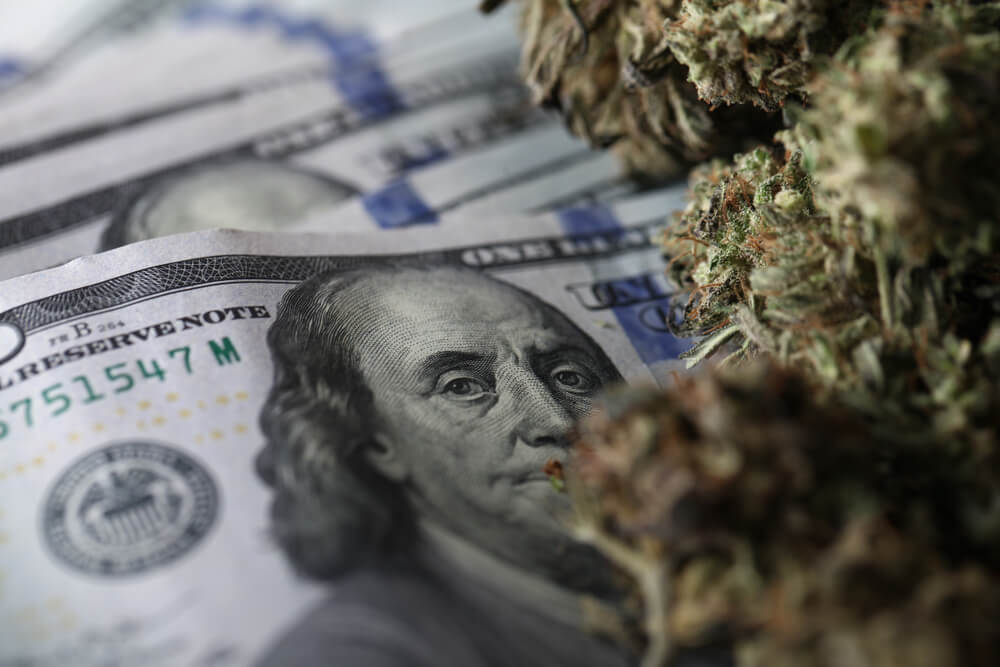In the short term, efforts for cannabis legalization have taken a blow due to the COVID-19 pandemic, but that might not last.
State lawmakers around the country have switched their focus to more pressing issues related to the novel coronavirus pandemic.
This has put pressure on activist groups to collect enough signatures to put adult-use cannabis legalization measures on November ballots.
But some in the cannabis industry believe adult-use cannabis legalization could get back on the fast track once the COVID-19 pandemic has been curbed.
And they need it if they are going to reverse the trend of slumping share prices.
Why the Fast Track to Cannabis Legalization?
Cannabis company chiefs believe legal marijuana could be a solution to sagging revenues in a recession.
“One of the programs by the federal government right after the Great Depression was to focus on tax revenue generation,” Curaleaf CEO Boris Johnson told CNBC. “They lifted prohibition on alcohol and therefore started to tax it — and it became a major revenue generator for both the federal and the local governments around the country.”
In 2020, the U.S. cannabis market is worth about $56 billion with nearly 90% of sales going untaxed in the illegal market, according to Cowen.
The coronavirus pandemic has actually boosted legal marijuana sales.
Where Cannabis Legalization Stands
Currently, there are 11 states and the District of Columbia where cannabis is legal for adult recreational use. New Jersey, Arizona and South Dakota all have November ballot measures scheduled. New York, Connecticut and Rhode Island have bills pending to legalize cannabis through the legislature.
There is also a bill in the U.S. House of Representatives that would legalize cannabis federally. If every representative from a state where cannabis is legal votes for the measure, it’s 45 votes short of the 218 needed to pass.
It would also have to clear the Republican-controlled U.S. Senate, but cannabis CEOs think the more states that consider legalization, the more pressure that will put on Congress.
“Each additional state that passes an adult-use law now has two senators that come from states that have cannabis programs,” Cresco Labs CEO Charlie Bachtell told CNBC. “They are going to be more familiar with it; they are going to understand the way the industry is developed, can work and can be a societal benefit.”
Cannabis Sales Expected to Rise
Sales for the week of March 16-22 show cannabis markets in California, Colorado, Oregon and Alaska — all legal recreational markets — were up 50%, while medicinal sales rose 41% for the week year over year.
Users have stockpiled supplies of legal cannabis despite marijuana dispensaries qualifying as essential businesses and staying open.
But even beyond the pandemic, sales of cannabis are expected to explode by 2024, according to a study by BDS Analytics.
Cannabis Companies Continue to Struggle
Despite the uptick in cannabis sales nationwide, cannabis producers continue to fall on hard times.
One such is Aurora Cannabis Inc. (NYSE: ACB) which recently approved a reverse stock split in an effort to save its slumping share price.
It is actually combining every 12 shares held into one. Reverse stock splits are usually done when a company’s share price falls. By consolidating the shares, the price of the stock should go up, theoretically.
Other companies like Tilray Inc. (Nasdaq: TLRY) and Cronos Group (Nasdaq: CRON) have all dropped below $10 per share.
One thing that could prop up cannabis stocks is mass legalization — either federally, or with other states coming on board.





